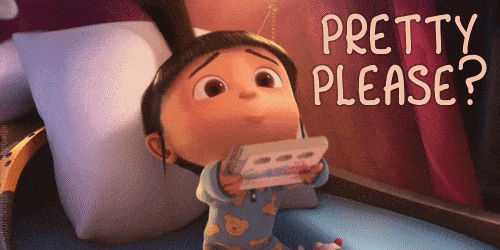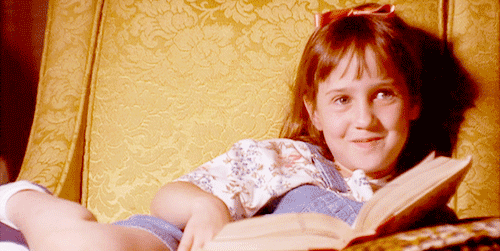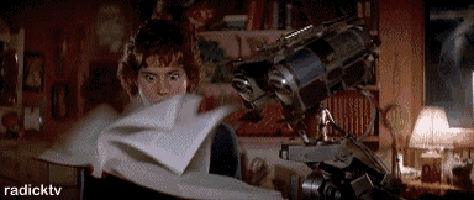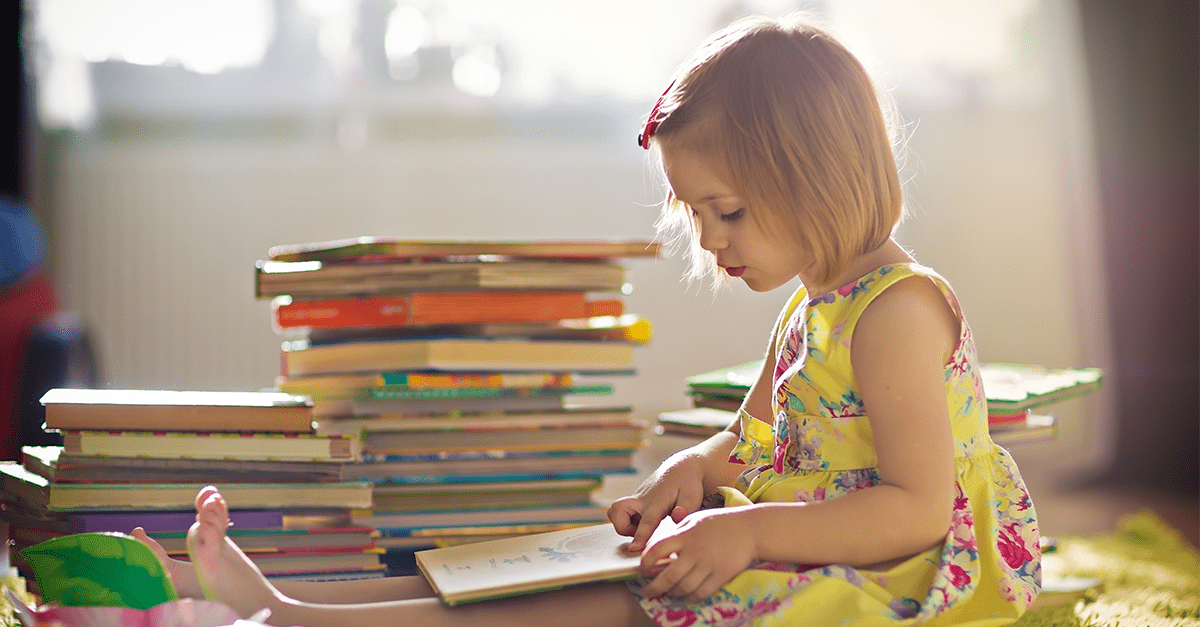Do you remember reading (or rather pretending to read) your favourite stories when you were a little kid? Or begging your parents to read you (just once more!) your favourite book? Learning to read is a big deal for every kid. And for their parents. But when should your kid be able to read a book or a short story? Should you worry or is your kid totally fine?

Wondering if your toddler or kid is learning to read/write/speak/walk when they should is completely normal. We all freak out and think that maybe our child might be struggling to acquire certain skills. Still, when it comes to literacy, kids require instructions and practice across all the stages. Reading is something kids don’t learn to do by themselves.
We don’t know every kid, but we do know what the usual milestones kids go through when it comes to reading development are:
1. Pseudo reading or Pre-reading
Up to 1 year old
Obviously, no one expects their kid to read by this age, but babies will start to perform certain actions that will help the “learning to read” process in the future:
- Imitate some of the sounds they hear
- Respond when talked to
- Look at pictures
- Hold books and turn the pages (with help)
From 1 to 3 years old (toddlers)
- Identify objects in books
- Finish sentences of books they’ve heard often
- Pretend to read books
- Scribble
- Identify books by their cover (and hopefully not judge them!)
- Turn pages
3 years old (preschooler)
- Recite the alphabet
- Imitate writing (most of the times not successfully)
- Pretend to read a book aloud
4 years old (still preschooler)
- Make rhymes
- Recognise and write part of the alphabet
- Recognise the first letter of words
- Understand the direction of reading and writing in their mother tongue
- Tell stories they’ve been told
- Identify and write their name
- Recognise signs and labels
5 years old kids (kindergarten)
- Match certain words with their written form
- Write some letters and words
- Know what will happen next in a story
- Retain and retell the main concepts of a story
- Arrange stories in order
- Can understand thousands of words they hear, but only read a few of them
Special treat: encourage your child’s love for reading and words with Kokoro kids!
A great way to encourage your child’s love for reading and words is playing the words’ games within Kokoro Kids. There, kids and toddlers from 2 to 5 will learn the alphabet, words, to identify objects and many more things! Needless to say it’s available on Android and on iOS!
2. Initial reading and decoding
Kids from 6 to 7 years old
The “decoding stage” starts:
- Read stories they’ve heard many times and some simple books
- Understand or sound out words that are new to them
- Be aware of when they’ve made a mistake and correct it
- Organise events into a logical sequence when writing
- Can read about 600 words and understand over 4000 words
3. Confirmation and Fluency
Kids from 7-8 years old

- Read books on their own with increasing fluency
- Consolidate the basic decoding elements
- Read aloud showing some emotion
- Spell correctly many more words
- Write notes
- Start to understand what paragraphs are for
- Include new words to their daily life
- Can read about 3000 words and understand about 9000 words
4. Reading for learning the new grades
Kids from 9 to 13 years old
- Read to learn new ideas and concepts, and acquire knoeledge
- Learn new vocabulary and syntax
- Read more complex books (fiction, non-fiction)
- Study textbooks and reference books
5. Multiple viewpoints
Kids from 14 to 17 years old
- Read from a broad range of materials
- Find it easier to understand by reading than by listening, specially when it comes to difficult stuff
- Start studying words and their parts
- Can understand multiple viewpoints
6. Constructions and Reconstruction
Adults

- Can read rapidly and efficiently
- Understand more complex materials
- Find reading a lot more efficient than listening
Signs that might indicate your kid could be struggling with reading
If you think your child’s progress doesn’t correspond to what doctors and educators convene when it comes to learning to read, don’t hesitate to talk to your kid’s tutor about it. Some signs that indicate your child might be struggling with reading development are:
- Confusing letters
- Not matching letters with their sounds
- Skipping words or often forgetting their meaning
- Constantly guessing at words they don’t know, instead of trying to read them
…
We hope you’ve found this post useful! And don’t hesitate to share with us tips on how to encourage your kid to read, or what books they love to read and be read! You can always stay up to date by checking our Facebook and our Twitter profiles!
And, of course, don’t hesitate to download Kokoro kids for your kid learn to read while having fun!




